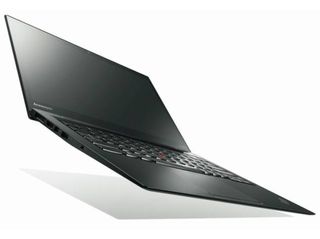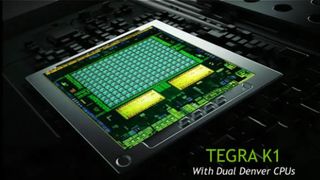Best of CES 2014: Intel dominates trade show full of promise
Lenovo X1 Carbon Ultrabook (2014) arrives & Corning unveils anti-microbial Gorilla Glass.
Laptops aren't dead
Apple's MacBooks are becoming increasingly popular in the consumer and commercial space, boasting better displays and battery life than Windows machines. But OEMs such as Lenovo have come out all guns blazing in 2014. And, based on first impressions, the X1 Carbon (2014) looks like it could be one of the standout products of the year.
The Ultrabook packs a 15in 2,560 x 1,440 resolution display, has a 17mm chassis and weighs 1.28kg. There's a choice between Intel's Core Haswell CPUs, with SSD storage and RAM options also configurable.

Lenovo has added an 'Adaptive Keyboard' to its flagship Ultrabook too. The top row of Function keys are replaced with an LCD touch strip that cycles through four modes - and automatically displays relevant buttons depending on the programme you are using.
Connectivity comes in the form of Wi-Fi 802.11ac, Bluetooth 4, and a proprietary Ethernet adapter. There's also an option for 3G. Ports include 2 x USB 3, HDMI and mini-DisplayPort. See a hands-on demo of the Lenovo X1 Carbon below:
Gorilla Glass targets germs for termination
There were a wealth of fitness wristbands and apps knocking around at CES, but a product which will benefit everyone is the latest version of Gorilla Glass.
Get the ITPro. daily newsletter
Receive our latest news, industry updates, featured resources and more. Sign up today to receive our FREE report on AI cyber crime & security - newly updated for 2024.
Antimicrobial Gorilla Glass will aim to inhibit the "growth of algae, mold, mildew, fungi, and bacteria" for the lifetime of a device. With touchscreens becoming an everyday part of life and a recent report from Which? suggesting touchscreens usually harbour more germs than a toilet seat, the latest version of Gorilla Glass can't arrive soon enough.
BlackBerry and Nvidia look to rebound
It wasn't all about the products at this year's show. Some companies showed up at CES 2014 to re-establish themselves - none more so than BlackBerry after a disastrous 12 months. The firm bet its future on its BB10 devices, which were launched at the end of January 2013. However, they bombed in a market dominated by Android and iOS and this resulted in BlackBerry's profits falling off a cliff and the firm having $4bn worth of unsold devices.
The firm put itself up for sale at the end of 2013, before backtracking and firing its CEO. John Chen is now in charge and is tasked with the momentous task of turning things around. He told attendees at CES the firm will concentrate on devices with physical keyboards and hopes it will return to profit by 2016.
Although not in as much trouble as BlackBerry, 2013 was also disappointing for Nvidia. The chip vendor's most high-profile win for the Tegra 4 chip was Microsoft's Surface 2 tablet, as competitors Qualcomm and Samsung dominated the smartphone and tablet landscape.

In an attempt to differentiate itself, Nvidia has integrated high-end Keplar graphics to its K1 mobile chip. The firm claims the processor will provide mobile devices with graphical power on par with PS3 and Xbox 360 consoles.
An automotive version of the chip will be ideal for camera-based computation in future self-driving cars with applications like pedestrian detection and collision avoidance, according to Nvidia CEO Jen-Hsun Huang.
Overall, CES 2014 has provided a nice teaser for the year ahead and with big things expected from tech heavyweights like Apple and Google, we expect it to be an exciting 12 months.




